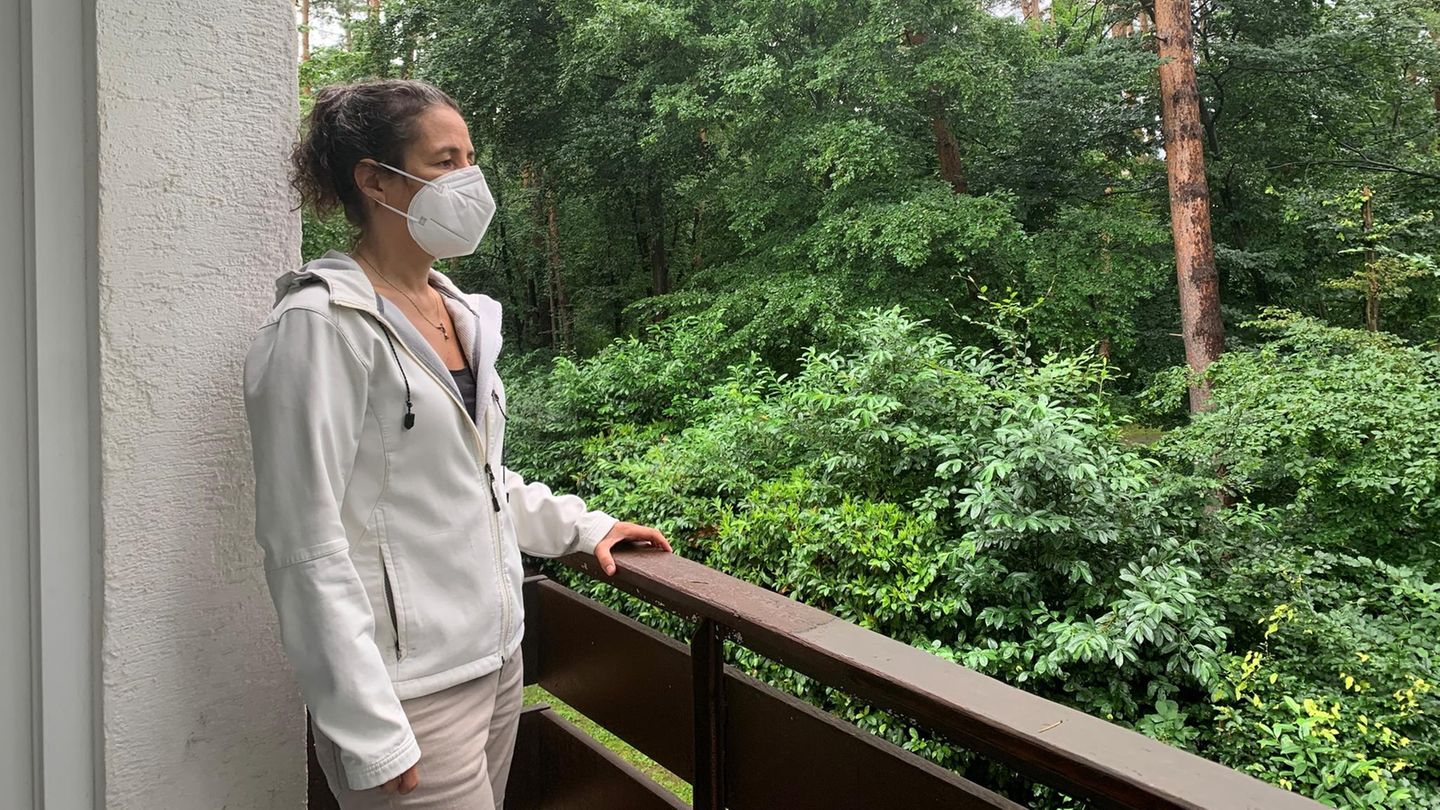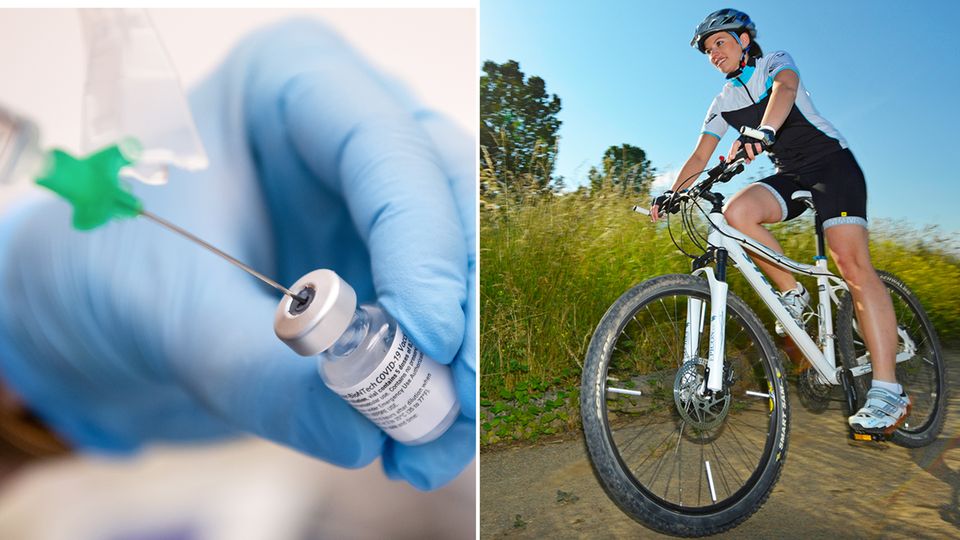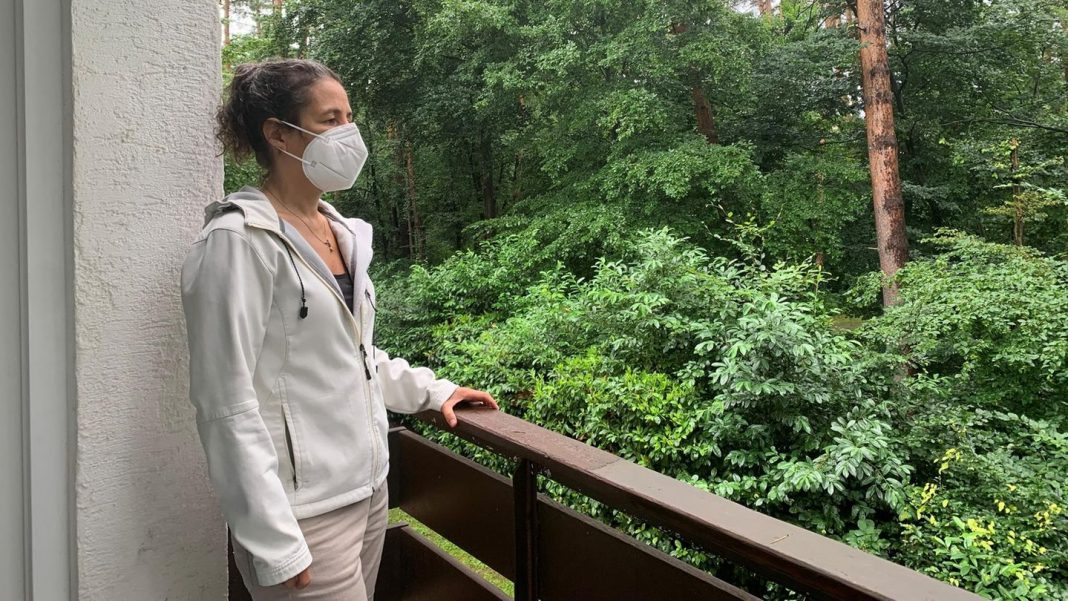Persistent complaints
Post-Covid Symptoms are often Difficult to Diagnose – Guidelines to Change that

Paula (52) has been struggling with breathlessness and powerlessness since her corona infection
© Private / DPA
What happens to people who have survived a corona infection but are still in poor health? A sufferer feels left alone with her problems. A guideline is intended to make it easier for doctors to deal with post – and long-Covid patients.
Five kilometers of jogging-that was never a problem for Paula. Now she is already limping after 1.5 kilometers at a walking pace. The reason is already three months ago: a corona infection. “I’m already walking rather than jogging, and yet I’m still gasping for air, and my pulse is racing,” says the 52-year-old from Karlsruhe. The industrial engineer is a typical post-Covid patient.
In acute Covid disease, symptoms usually persist for up to four weeks. But for many like Paula W., the suffering continues. According to Andreas Rembert Koczulla of the German Society for Pneumology and Respiratory Medicine (DGP), the number of people with long-term consequences is 550,000 nationwide. “Of those declared to be recovered, about 15 percent still struggle with the most diverse symptoms.”
Shortness of breath, hair loss and ear pain – the spectrum of symptoms for sequelae of infection with the coronavirus is large. Given this diversity, it is difficult for family doctors to attribute their patients ‘ problems to Covid-19, especially when several weeks after infection have gone into the country.
Guidelines to facilitate diagnosis
This should now be remedied. “We want to provide medical professionals with guidelines that make it easier for them to identify the consequences of infection,” says Koczulla, chief physician at Schön Klinik Berchtesgadener Land. The manual, which he has written with experts from other disciplines and intends to publish shortly, serves as structured as possible diagnostics and therapies aimed at this.
In relation to the duration of the sequelae, the DPG distinguishes between long-Covid and post-Covid. The persistent symptoms of the acute illness beyond four weeks are referred to as Long Covid. If those affected still struggle with the symptoms after twelve weeks,they suffer from post-Covid. Affected by the long-term medical and psychological effects are both people with severe course and those with mild.
In Paula, the initial symptoms such as fever, dry cough and headache improved after 3.5 weeks of home quarantine. What remained for her was a lack of breath and strength. She feels left alone with her complaints. “During the illness phase, I was referred to the Covid practice by my GP practice.”But only tests would be carried out there.
Around 20 symptoms can be found in those affected. Lack of resilience, fatigue and shortness of breath are predominant. Changes in the lungs often occur in previously hospitalized patients, as Koczulla explains. In addition to lung and heart problems, olfactory and taste disorders also fall under the very common symptoms. Common are hair loss, sleep disorders and cognitive impairment. Rarely, the consequences of corona are expressed in tinnitus, nausea, diarrhea or loss of appetite. In all three frequency groups, psychological impairments occur more frequently: patients are more susceptible to stress, more anxious and more depressed.
Some Post-Covid patients fall through the cracks
Paula was on her own and the experiences of others affected during the acute and subsequent phases. Vitamins, magnesium and expectorants were part of self-medication. If girlfriends had not put food on their doorstep every day, she would be even more powerless today. “You have to organize yourself and depend on your social environment.”She wants patients like you to be taken seriously. “Training of doctors to deal with non-clinically treated Covid patients is urgently needed.”By video consultation or telephone, a contact is not a problem.
Hans-Michael Mühlenfeld of the German Society for General Medicine and Family Medicine (DEGAM) admits that many a patient suffering from the corona late effects can fall “through the cracks”. “This happens with rare diseases such as post-Covid.”If the family doctor admits that he does not know his way around, it is only responsible. Good addresses are the University Hospital outpatient clinics.

He is surprised by the planned guideline of the GDP and points out that DEGAM has already integrated the topic of late effects into its guideline on pandemic control. If departments drew up guidelines for other groups of doctors, this would not work. “They don’t know what’s going on here,” says Mühlenfeld.
Claus Vogelmeier, chief executive Officer of the German Lung Foundation, advises patients who believe they suffer from Covid follow-up syndrome to closely monitor their symptoms and inform their doctor. “If shortness of breath still prevails after six to eight weeks, this should definitely be examined.”


